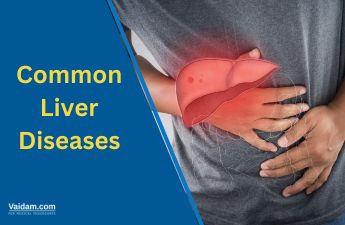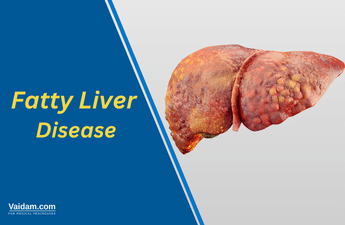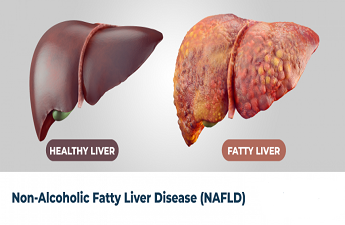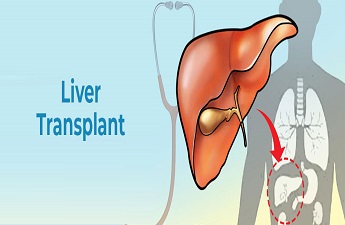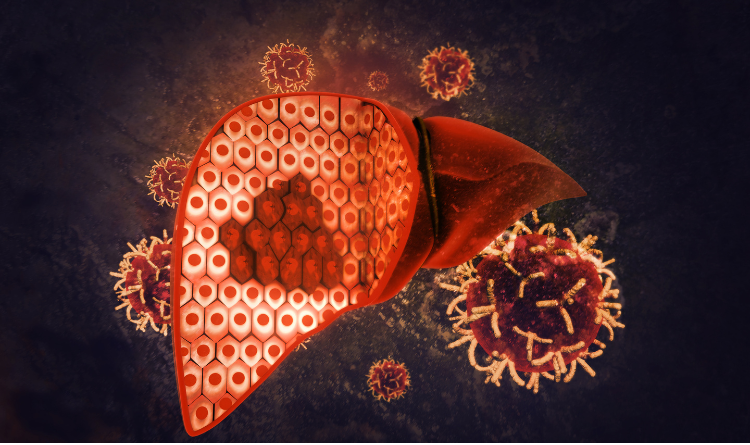
Liver cancer is a serious condition that develops when cells in the liver grow and multiply uncontrollably. It can be challenging to detect in its early stages, as the symptoms may not become apparent until the disease has progressed.
Did you know liver cancer is the sixth most common cancer worldwide and the fourth leading cause of cancer death? In 2020, there were an estimated 905,677 new cases of liver cancer worldwide and 830,180 deaths.
Liver cancer is most common in people with a history of liver diseases, such as cirrhosis, chronic hepatitis B or C infection, or non-alcoholic fatty liver disease. Cancer is also more common in men than in women.
Liver cancer symptoms in males are similar to those in females and may include abdominal pain, jaundice, fatigue, unexplained weight loss, and nausea or vomiting. However, liver cancer is more common in males than in females. Risk factors for liver cancer in men include a history of alcohol abuse, chronic viral hepatitis, and obesity.
Get in Touch with Medical Experts
Where Does Liver Cancer Usually Start?
Most cases of liver cancer start in the liver cells, known as hepatocytes. However, some types of liver cancer, such as cholangiocarcinoma, start in the bile ducts. Risk factors for liver cancer include a history of liver diseases, such as cirrhosis, chronic hepatitis B or C infection, or non-alcoholic fatty liver disease.
Where is Liver Cancer Pain Felt?
Liver cancer pain may be felt in the upper right portion of the abdomen, near the ribcage, or in the back. The pain could be dull and constant or sharp and intermittent, accompanied by other symptoms such as nausea, vomiting, and fatigue.
How Do You Confirm You Have Liver Cancer?
Confirming a diagnosis of liver cancer typically involves a combination of imaging tests, laboratory tests, and a biopsy.
Imaging tests such as ultrasound, (CT) scan, or (MRI) may be used to visualize the liver and detect any abnormalities, such as tumors or cysts. These tests can also help determine the size and location of tumors and whether they have spread to other body parts.
Laboratory tests can also be useful in diagnosing liver cancer. Blood tests may be performed to assess liver function and detect the presence of certain proteins or enzymes that may indicate the presence of cancer.
A biopsy is a definitive method of diagnosing liver cancer. A biopsy involves examining a small sample of liver tissue under a microscope. This may be done through a procedure called fine-needle aspiration, in which a thin needle is inserted into the liver to remove a small tissue sample. Alternatively, a biopsy may be done to remove a portion of the liver during a surgical procedure.
Once a diagnosis of liver cancer has been confirmed, further tests may be done to determine the cancer stage and whether it has spread to other parts of the body. This information is important in guiding the treatment plan and determining the outlook for the patient.
What is Stage 0 Liver Cancer?
Stage 0 liver cancer, also known as carcinoma in situ, refers to cancer cells that are found only in the top layer of liver cells and have not spread to nearby tissue. The cancer is highly treatable at this stage and may be cured with surgery or other therapies.
Five Symptoms of Liver Cancer are
-
Abdominal Pain and Swelling: One of the most common signs of liver cancer is abdominal pain or swelling. This may occur due to the cancerous tumor pressing against the liver or other organs in the abdomen. The pain may be dull or sharp and may be accompanied by a feeling of fullness or discomfort in the abdomen.
-
Jaundice: In this condition, the skin and whites of the eyes become yellow, which is due to the buildup of bilirubin, a waste product produced by the liver. When the liver doesn't function properly, it may be unable to eliminate bilirubin from the body, resulting in jaundice. Jaundice may also be accompanied by dark urine and pale stools.
-
Fatigue: Liver cancer can cause a feeling of fatigue or weakness that does not go away even after rest. This may be due to the cancerous tumor diverting the body's resources away from normal bodily functions, causing the individual to feel tired and run down.
-
Unexplained Weight Loss: Unexplained weight loss may also indicate liver cancer. This occurs when the body is not able to metabolize food properly due to the cancerous tumor. This may result in a loss of appetite and unintentional weight loss.
-
Nausea and Vomiting: Liver cancer can also cause nausea and vomiting, particularly if the cancerous tumor blocks the bile ducts. This may result in a buildup of bile in the stomach, causing nausea and vomiting.
Can Liver Cancer Lead to Death?
Yes, liver cancer can be life-threatening, particularly if it is not detected and treated in the early stages. However, the outlook for people with liver cancer depends on many factors, including the cancer stage, the age and overall health of the patient, and the effectiveness of treatment.
The five-year survival rate for liver cancer depends on the cancer stage at diagnosis. The overall five-year survival rate for all stages of liver cancer is around 20%, but this varies widely by stage. For example, the five-year survival rate for people with early-stage liver cancer (stage 0 or A) is around 70%, while the five-year survival rate for people with advanced liver cancer (stage IV) is less than 5%.
End-Stage Liver Cancer Symptoms

End-stage liver cancer symptoms may include:
-
Severe jaundice
-
Abdominal swelling
-
Loss of appetite
-
Weight loss
-
Confusion
-
Decreased consciousness
Cancer may have spread to other organs at this stage and be difficult to treat.
Liver Tumor Symptoms
Symptoms of a liver tumor may include:
-
Abdominal pain or swelling
-
Nausea
-
Vomiting
-
Fatigue
-
Unexplained weight loss
-
Yellowing of the skin and eyes
However, some people with liver tumors may not experience any symptoms at all, especially in the early stages of the disease.
Takeaway
In conclusion, liver cancer can be difficult to detect in its early stages, as the symptoms may be vague and non-specific. However, if you experience any of the above signs and symptoms, it is important to consult a healthcare professional for further evaluation and diagnosis. Early detection and treatment of liver cancer can improve the chances of successful treatment and a better outcome.















